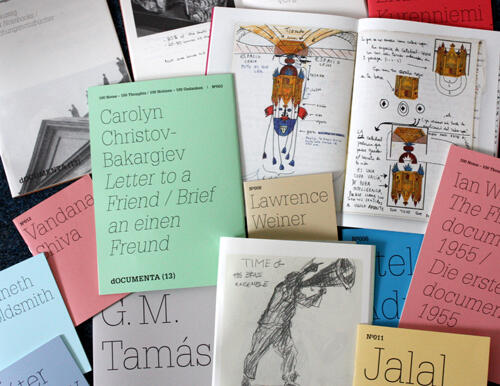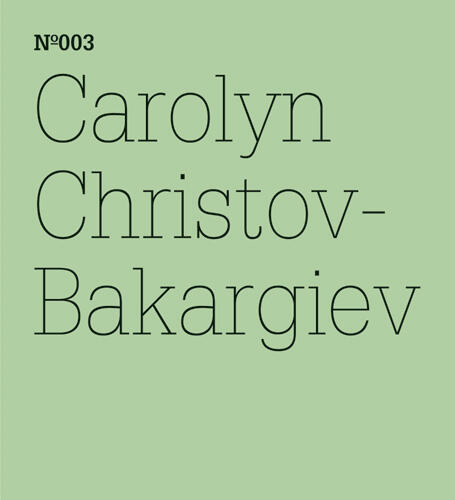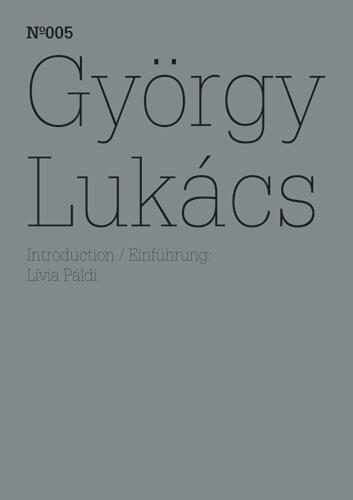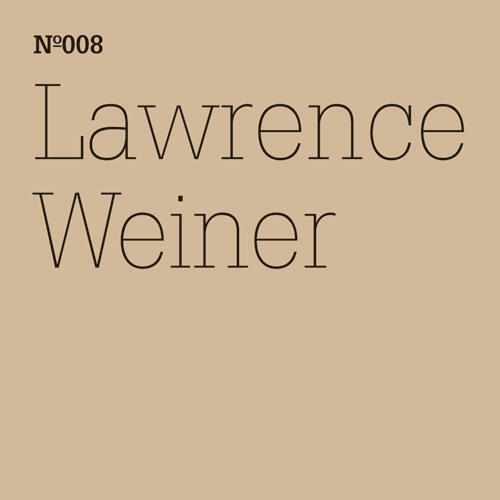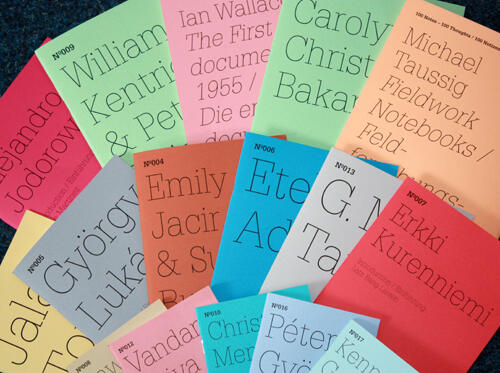dOCUMENTA (13) notebooks
at Thessaloniki Biennial of Contemporary Art, Archaeological Museum
100 Notizen – 100 Gedanken / 100 Notes – 100 Thoughts is launched with a lecture and a presentation at Thessaloniki Biennial of Contemporary Art, Archaeological Museum. Chus Martínez, Head of Department, Member of Core Agent Group for dOCUMENTA (13), will introduce the series 100 Notes – 100 Thoughts.
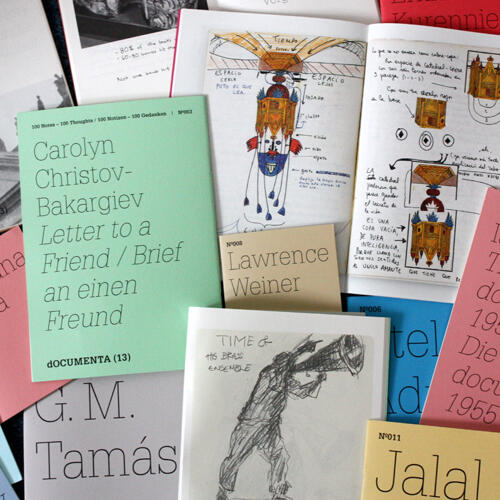
Commissioned by dOCUMENTA (13)’s Artistic Director Carolyn Christov-Bakargiev together with Martínez, this series is edited by Head of Publications, Bettina Funcke. The notebooks appear in three different formats and range from 16 to 48 pages in length. Contributors hail from diverse fields – art, science, philosophy, psychology, anthropology, political theory, literature, and poetry. The second round of notebook authors include Arjun Appadurai and Nalini Malani, Doug Ashford and Julie Ault, Mario Bellatin, Bifo – Franco Berardi, Mariana Castillo Deball and Roy Wagner, Dario Gamboni and Paul Gauguin, Mariam and Ashraf Ghani, Donna Haraway, Alexander Kluge, Pamela M. Lee and Meyer Shapiro, Romaine Moreton, Nikos Papastergiadis and Cornelius Castoriadis, Griselda Pollock, Suely Rolnik, Annemarie Sauzeau, and Mario Garcia Torres.
The 100 Notes – 100 Thoughts series is being launched at various places and in various moments, each accompanied by a discussion on the nature and the aim of this publishing project. You can acquire individual notebooks or subscribe to the entire series of 100 notebooks in both printed and e-book editions at www.hatjecantz.de/documenta13
After this lecture, Marina Fokidis, co-curator of the 3rd Thessaloniki Biennial, will host a discussion with Yannis Stavrakakis, Associate Professor, School of Political Sciences, Aristotle University of Thessaloniki and Chus Martínez at the Archaeological Museum in Thessaloniki. This is the fourth public presentation of dOCUMENTA (13)'s 100 Notes – 100 Thoughts series, following presentations in Cairo on April 21, 2011, New York on May 10, 2011 and Buenos Aires on May 19, 2011.
A notebook was a revolutionary device for the care of the self in ancient Greece. A note is not a text. It is positioned outside discourse. A note lacks the ideological dimension that is characterized by intention – unlike the statement or the manifesto or even the essay in critical theory.
Unmarked by the will to convey a message, notes are generating impulses, having a compositional function. A note begins with an affect and a sense that something is of importance – let's say the leaden taste of collapse. Text and image, thought and text, text and reality, reality and a note: these oppositions insist on differences, and that is not necessary, nor useful. The note gleams with contradictory aspects. A note does not represent, not even thought. However, it is charged with representational effects, with realistic indications.
In a time of pre-collapse – like in Greece, and elsewhere today – the right to dissent from rules may be called for, as well as the need for new instruments for the construction of a relationship with oneself. As a governor manages the governed (kratia), as a head of a household manages the household (oiconomia), the hypomnemata, the notes, the notebooks, are personal but not intimate collections of what one could hear, see, or read –the writing on the walls of a demonstration for example, and this to an end which is the care and constitution of the self: able to recover as part of the “objective” world, participating in its invention.

